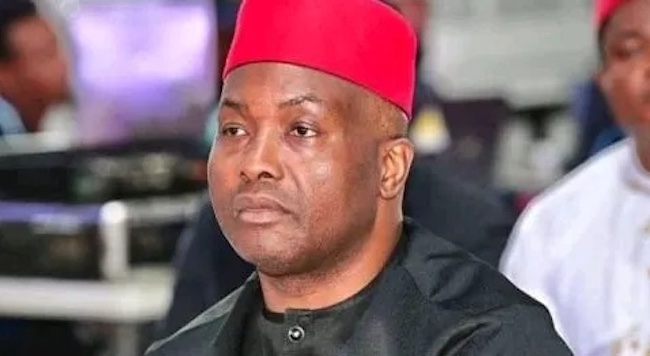News
Senate confirms Ifeanyi Ubah’s death

The Senate has confirmed the death of the Senator representing Anambra South, Ifeanyi Ubah.
The Senate Spokesman, Yemi Adaramodu, confirmed Ubah’s death in a statement on Saturday in Abuja.
The lawmaker died in a United Kingdom hospital earlier on Saturday.
Adaramodu said: “It is with deep sorrow and profound regret that the Senate announces the passing of our esteemed colleague, Sen. Ifeanyi Ubah, who, until his passing, represented Anambra South Senatorial District.
“Ubah was an exemplary leader, a committed public servant, and an indefatigable advocate for his constituents.
“His untimely departure represents a significant loss to the Senate, his community, and the nation at large.”
READ ALSO: Senator Ifeanyi Ubah dies in London
He added that Ubah had distinguished himself as a prominent businessman and a philanthropist.
The spokesman said the deceased as the Founder and Chief Executive Officer (CEO) of Capital Oil and Gas Industries Limited made substantial contributions to Nigeria’s energy sector and created job opportunities.
“Through the Ifeanyi Ubah Foundation, Senator Ifeanyi Ubah’s philanthropic endeavours provided scholarships, healthcare, and vital support to the less privileged and impacted countless lives.
“Throughout his tenure in the Senate, Ubah demonstrated unwavering dedication to the progress and development of Anambra South and Nigeria as a whole.
“He was a beacon of hope, a champion of economic empowerment, and a steadfast supporter of legislative reforms aimed at improving the lives of all Nigerians, he stated.
Join the conversation
Support Ripples Nigeria, hold up solutions journalism
Balanced, fearless journalism driven by data comes at huge financial costs.
As a media platform, we hold leadership accountable and will not trade the right to press freedom and free speech for a piece of cake.
If you like what we do, and are ready to uphold solutions journalism, kindly donate to the Ripples Nigeria cause.
Your support would help to ensure that citizens and institutions continue to have free access to credible and reliable information for societal development.




























